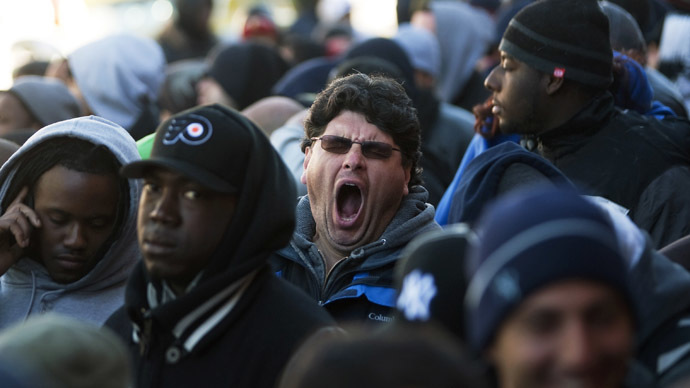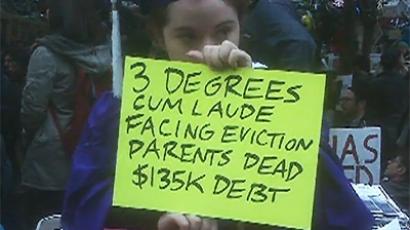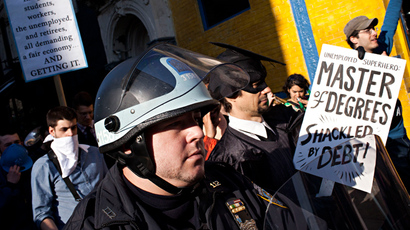Out-of-job Americans left desperate as long-term unemployment benefits expire

While US lawmakers spar over extending unemployment benefits, out-of-work Americans could wake up on December 28 to find themselves unable to afford life’s basic necessities.
Barring last-minute action by Congress, the long-term unemployment insurance program will expire on Saturday, leaving 1.3 million Americans to fend for themselves as they continue to look for jobs in an economy that’s still recovering.
For many unemployed individuals, these benefits are the only safety net they have, and they’re the only things keeping them from sliding into poverty.
One Michigan woman in danger of losing her benefits, Linda Sandefur, told NPR that without her unemployment check, she would be unable to pay the mortgage on her house, which she shares with her mother.
"I have a master's degree and bachelor's degree, 20 years of work experience," she said. "This is like my third go-around on unemployment. And for me, the American dream is dead."
Sandefur isn’t the only one using benefits to keep a roof over her head, however, as many unemployed Americans rely on their weekly paychecks to stay sheltered, pay medical bills, and put food on the table.
"Even though it's a struggle to buy food and everything, it means that I am keeping the lights on and I'm keeping food in the house, sometimes just barely but I'm able to do that," Ellen Andrews, a New Yorker and mother of one, said to ABC News. "It's keeping me afloat until I can get to that next job."
Meanwhile, limited job training and career-changing opportunities have others wondering what options actually exist for those who’ve been out of the job market for so long. Massillon, Ohio man Mike Lutz already lost his home once in a foreclosure back in 2010, and now he’s on his second round of unemployment assistance. He’s pessimistic about the future for those who don’t already have skills that are in demand.
"What choices are you giving people because there's not really work out there to have. ... If they cut (benefits) off the way they're talking about, I don't see a lot of opportunities for the labor force,” he said to local CantonRep.com. “Maybe if you're college-educated and you got good computer skills or accounting skills, it might not affect you so bad. But for someone who builds houses, builds roads, those jobs aren't really out there."
But while the fate of the unemployment assistance program hangs in the air, the impact of expiring benefits could have serious consequences for the lives of Americans and the U.S. economy.
According to President Barack Obama’s Council of Economic Advisors and the Labor Department, failure to extend benefits towards those unemployed longer than 26 weeks could cost the U.S. economy about 240,000 jobs. A report drafted by the council noted that Congress has never allowed benefits to expire with the unemployment rate where it is today, at 7.3 percent.
Meanwhile, a report by the Washington Post stated that 4 million people – college graduates, married individuals with families, the elderly, and more – have remained jobless for 27 weeks or more. That number is lower than it was at the peak of the Great Recession, but it’s still the highest level it’s been at since World War II.
Additionally, the Center on Budget and Policy Priorities expects nearly five million people to see their benefits disappear entirely before they can find a job over the next year.
Many Republicans have balked at authorizing another extension for the program. Some believe it depresses job creation by reducing the incentive to find work. With some states offering up to 73 weeks of unemployment aid, other Republicans believe it’s time to bring the program back down to its traditional size.
In the Senate, Majority Leader Harry Reid (D-Nev.) has scheduled a procedural vote on a three-month extension in early January, but it’s unclear whether he can garner enough support to pass the measure, or whether the Republican-controlled House of Representatives would approve the extension should it make its way to the chamber.
Until then, however, unemployed Americans are hoping to get by just long enough to have a decent chance to find a good job, and to create a decent life for themselves and their families.














